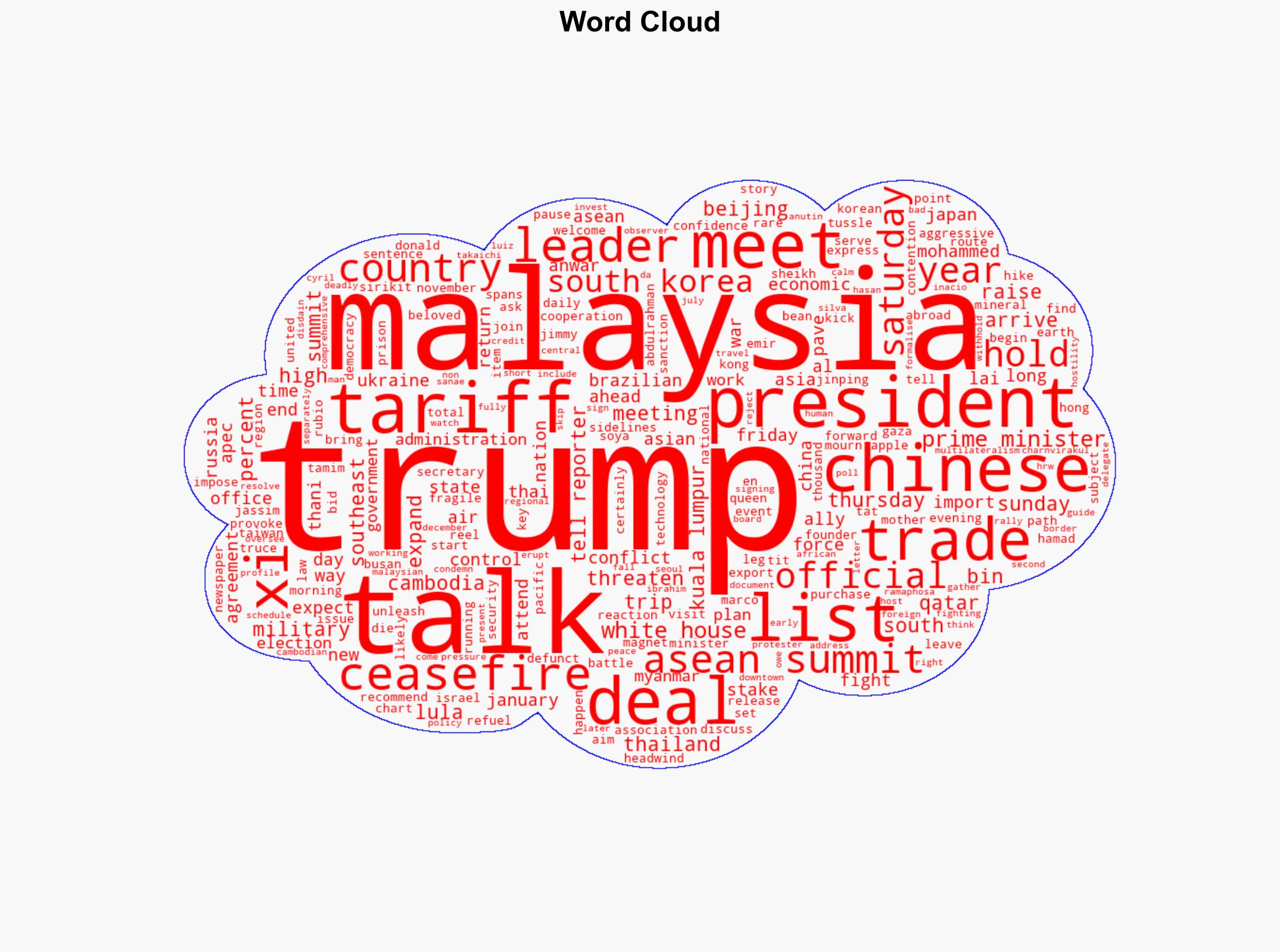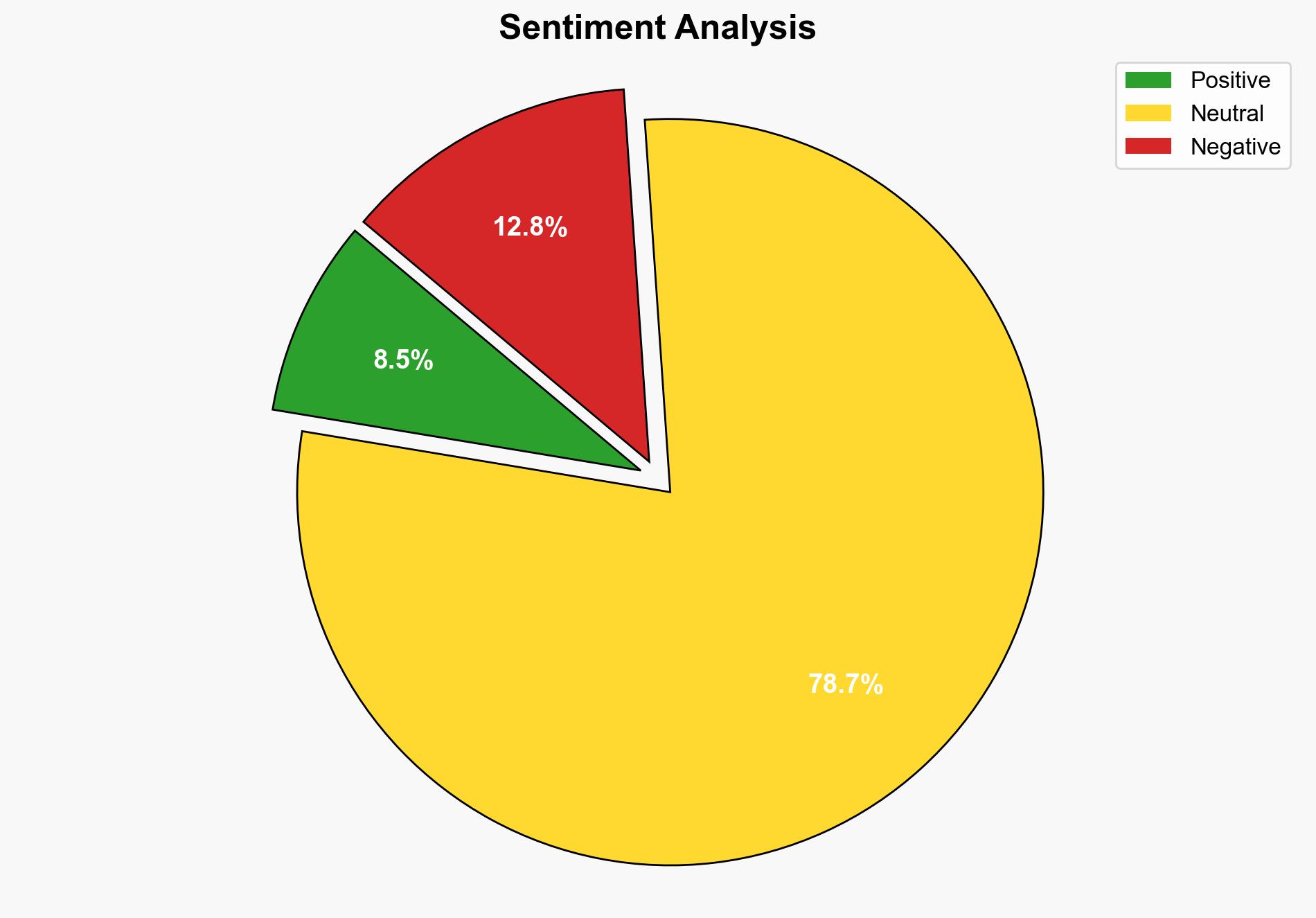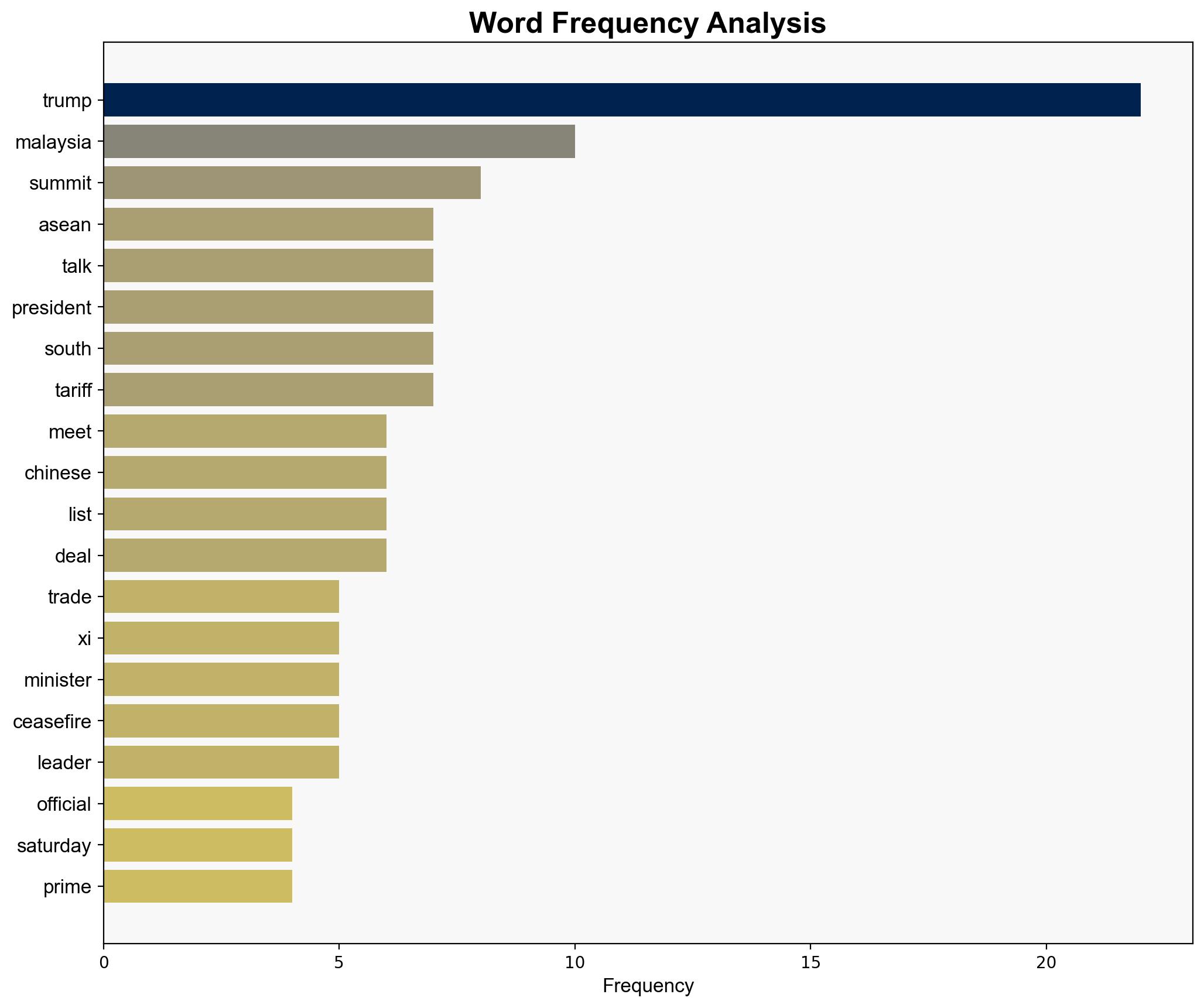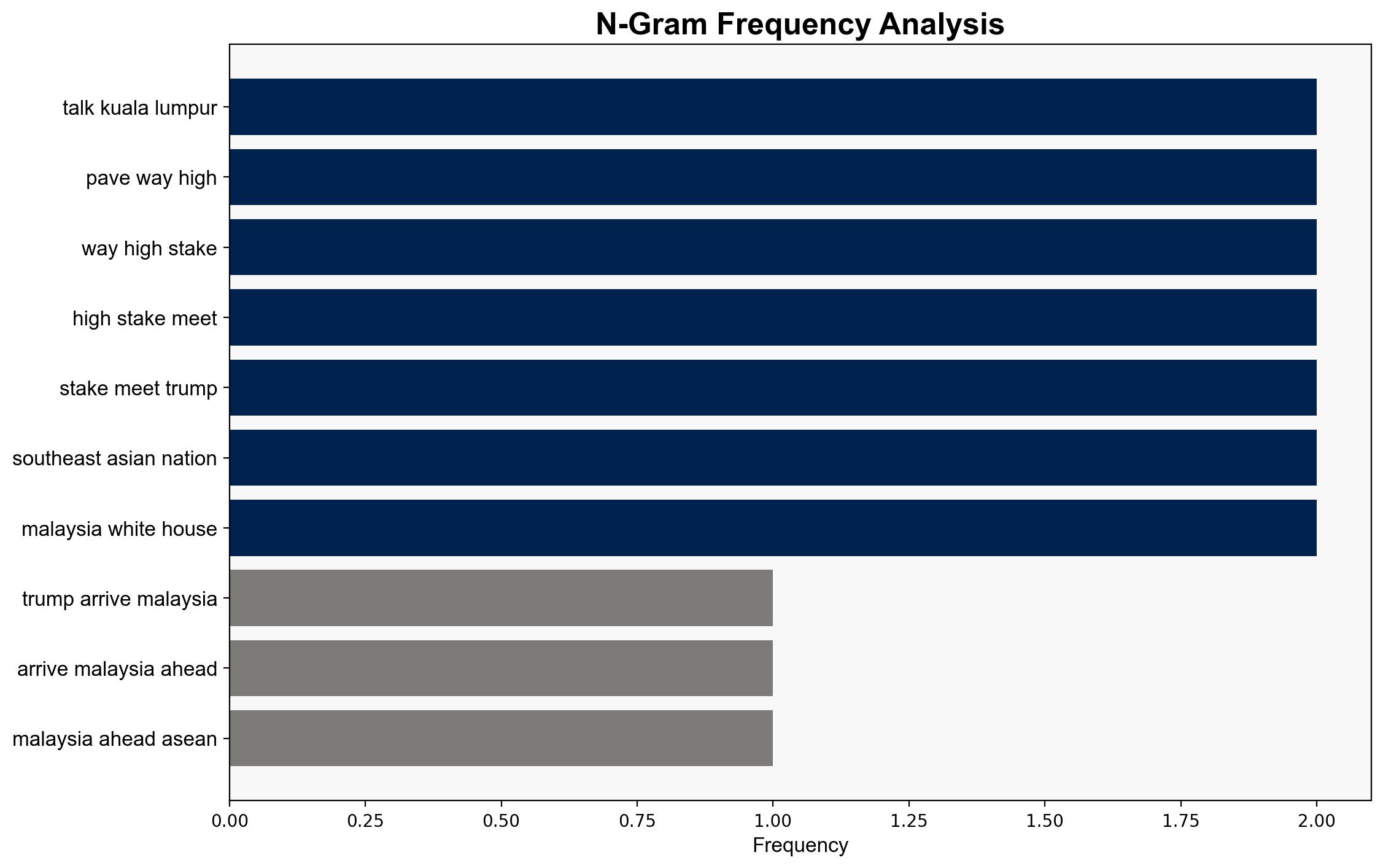Trump to arrive in Malaysia ahead of ASEAN summit amid trade tussles – Al Jazeera English
Published on: 2025-10-25
Intelligence Report: Trump to arrive in Malaysia ahead of ASEAN summit amid trade tussles – Al Jazeera English
1. BLUF (Bottom Line Up Front)
The most supported hypothesis is that Trump’s visit to Malaysia and the ASEAN summit is primarily aimed at leveraging multilateral discussions to address ongoing trade tensions with China. This hypothesis is supported by the strategic timing and location of the meetings, as well as the involvement of key economic and political figures. Confidence level: Moderate. Recommended action: Monitor the outcomes of the Trump-Xi meeting and ASEAN summit for shifts in trade policy and regional alliances.
2. Competing Hypotheses
1. **Hypothesis A**: Trump’s visit is primarily focused on resolving trade disputes with China through multilateral engagements at the ASEAN summit, using the platform to negotiate favorable terms and reduce tariffs.
2. **Hypothesis B**: The visit is a strategic move to strengthen U.S. influence in Southeast Asia, countering China’s growing presence by engaging with ASEAN countries and addressing regional security issues.
Using the Analysis of Competing Hypotheses (ACH) 2.0, Hypothesis A is better supported due to the emphasis on trade talks and the presence of economic officials from China, indicating a focus on economic negotiations. Hypothesis B is less supported as the source text highlights trade discussions more prominently than security concerns.
3. Key Assumptions and Red Flags
– **Assumptions**: It is assumed that the primary agenda of the visit is trade-focused, and that ASEAN countries are willing to engage in discussions that may counterbalance China’s influence.
– **Red Flags**: The potential for cognitive bias exists in underestimating the geopolitical motives behind the visit. Inconsistent data regarding the specific outcomes expected from the Trump-Xi meeting could indicate strategic deception or incomplete intelligence.
4. Implications and Strategic Risks
– **Economic**: Successful negotiations could lead to a reduction in tariffs, benefiting global markets. However, failure to reach an agreement may exacerbate trade tensions.
– **Geopolitical**: Strengthened U.S. ties with ASEAN could shift regional power dynamics, potentially leading to increased tensions with China.
– **Psychological**: The visit may influence public perception of U.S. commitment to Southeast Asia, affecting regional stability and alliances.
5. Recommendations and Outlook
- Monitor the outcomes of the Trump-Xi meeting for changes in trade policy.
- Engage with ASEAN countries to assess shifts in regional alliances.
- Scenario Projections:
- Best: Successful trade negotiations lead to reduced tariffs and improved U.S.-China relations.
- Worst: Trade talks fail, resulting in increased tariffs and regional instability.
- Most Likely: Partial agreements are reached, maintaining the status quo with minor adjustments.
6. Key Individuals and Entities
– Donald Trump
– Xi Jinping
– Anwar Ibrahim
– Marco Rubio
– Tamim bin Hamad Al Thani
– Sanae Takaichi
– Luiz Inacio Lula da Silva
– Cyril Ramaphosa
7. Thematic Tags
national security threats, cybersecurity, counter-terrorism, regional focus




